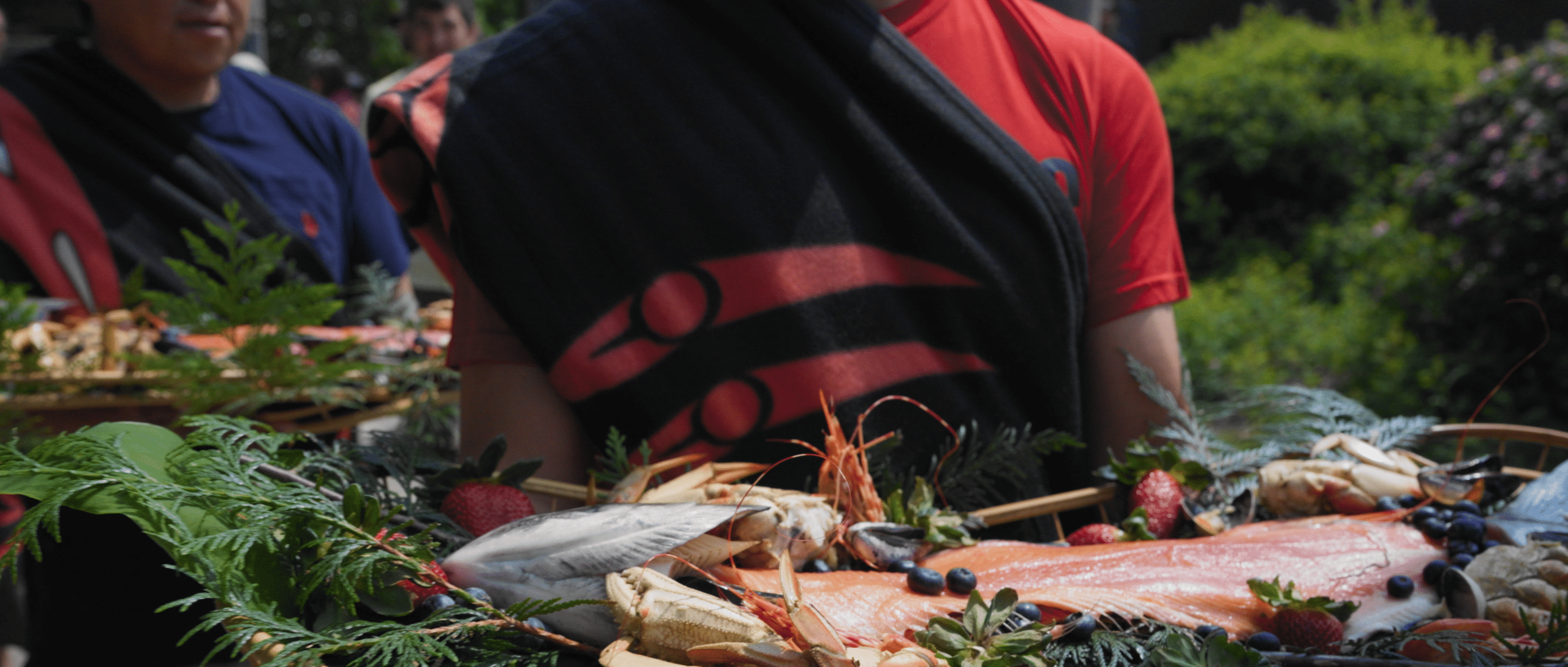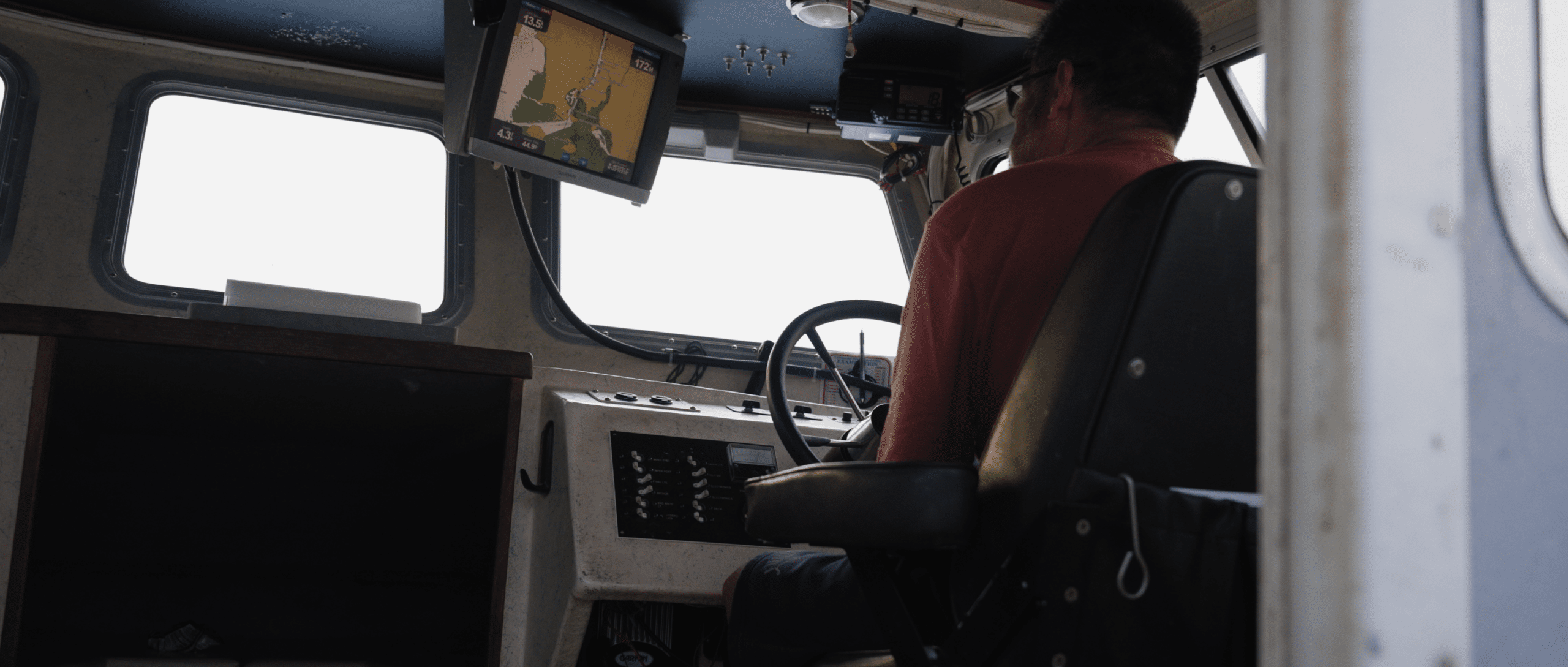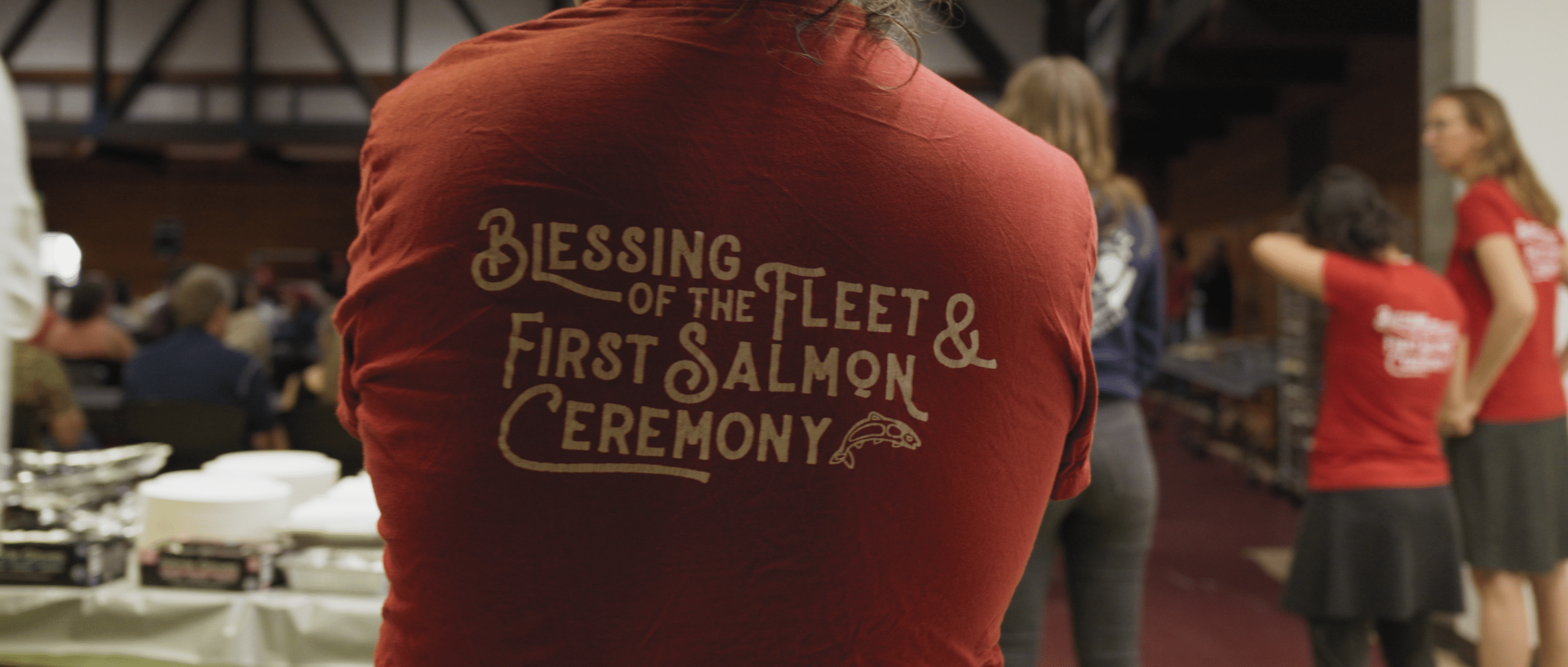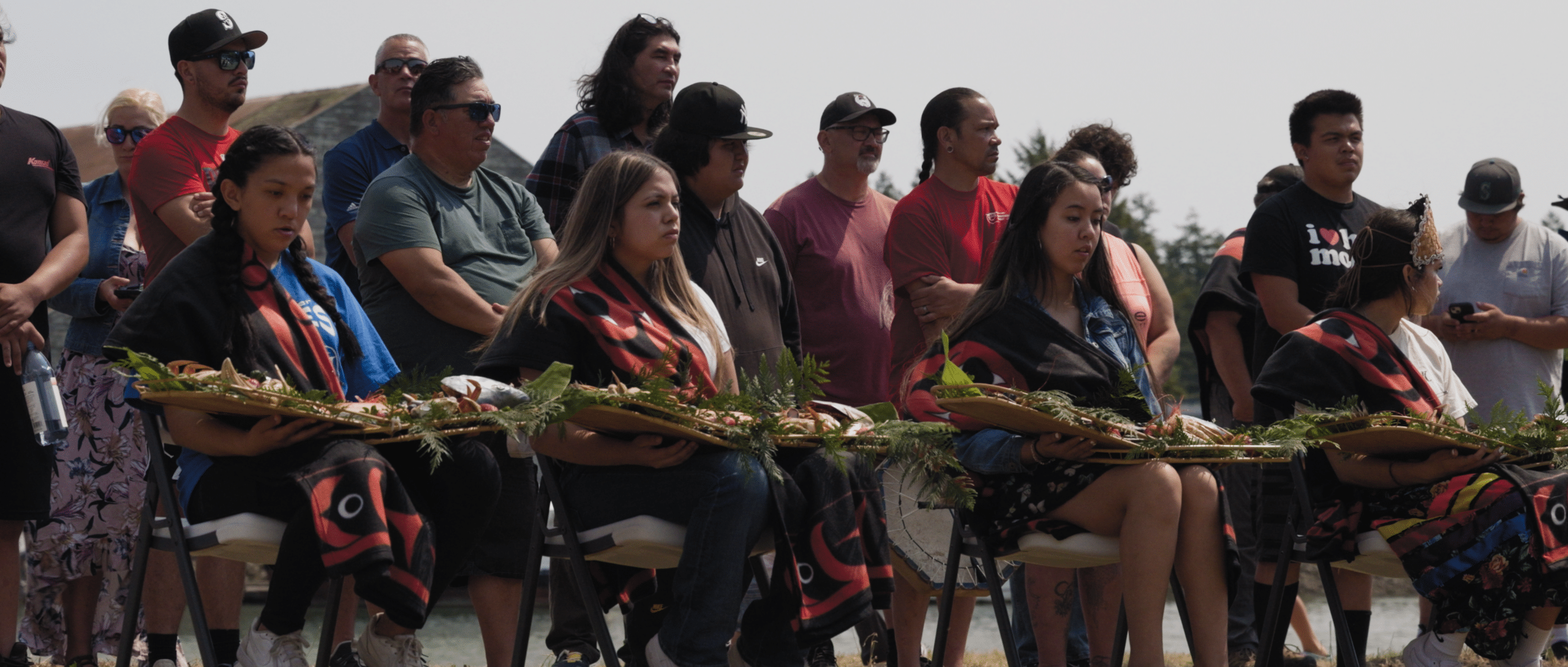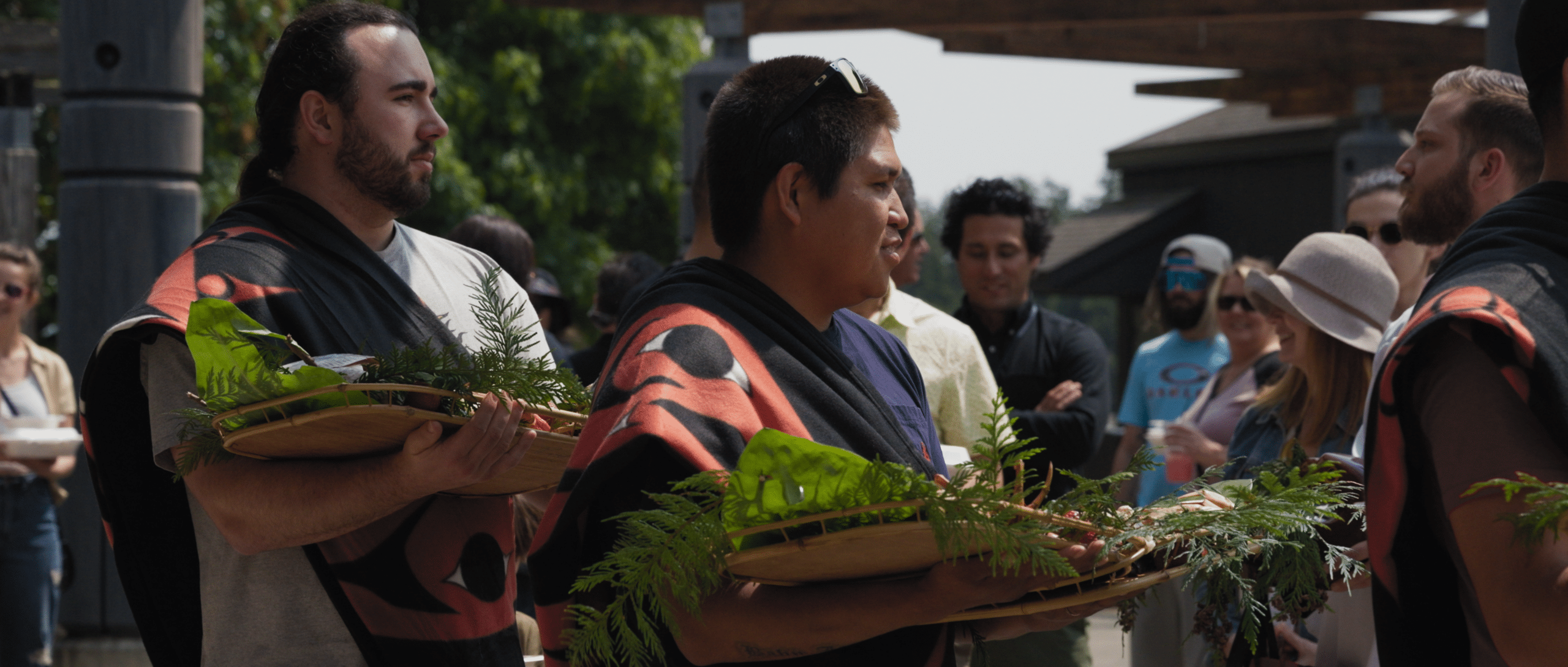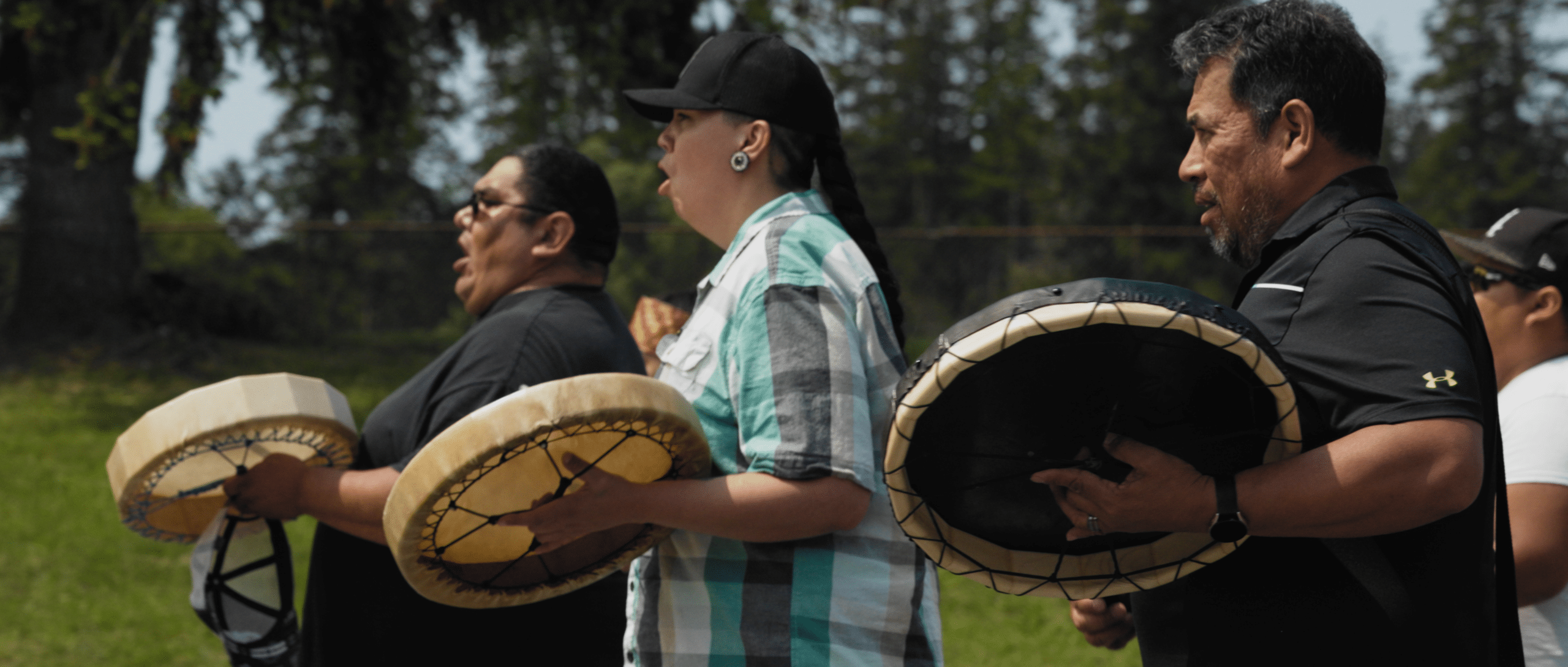Fisherman and Swinomish Tribal Council member J.J. Wilbur invites us to learn about the Tribe’s First Salmon Ceremony and Blessing of the Fleet, as well as the important role that salmon hold within Coast Salish culture.
Can you tell us your name and title?
My traditional name is kuts but soot. I carry that name from my grandfather. It’s an old name that goes way back seven generations in our family. My English name is Jeremy James Wilbur, otherwise known as J.J. Wilbur.
My title here at Swinomish is, first and foremost, a fisherman. That’s what I’ve done to support myself and my family for the last 40 years. I’m also a Tribal senator, or a council member, here at Swinomish.
Can you tell me a bit about how Washington’s coastline is significant to the Swinomish Tribe?
Our folks have been on these lands and traveled the waterways and traded with other communities since time immemorial. Our footprint here—not just at Swinomish, but on the Washington coastlines in general—goes way back. The history of that is important to us as a people, and the natural resources and things that we rely on to feed our people come from these coastlines still today.
Can you tell me about the significance of the First Salmon Ceremony and the Blessing of the Fleet?
The First Salmon Ceremony goes way back here at Swinomish. It’s also been practiced since time immemorial. It did take a pause. My aunt, Lorraine Loomis, revived it back in the late seventies, early eighties as Fisheries Manager.
It’s intended to bless our fishing fleet and the waters and the resources that we harvest to put food on our tables and provide for our families here at Swinomish. We feel it is important to bless the salmon and the waters that care for our people. And, of course, [to bless] our fishing community so that they come back safe from harvesting and are able to put food on the table for our families here at Swinomish.
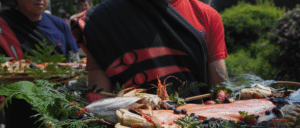
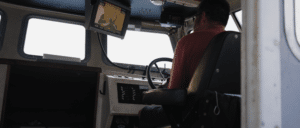
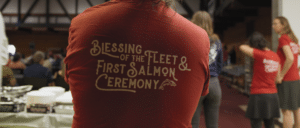
Can you tell us more about each of the phases of the Blessing of the Fleet?
Absolutely! First of all, we invite everybody to witness and participate in the Blessing of the Fleet. We gather everybody—it’s traditional to gather everybody. We call it breaking bread here at Swinomish. We eat, we share a meal, we visit, we talk, we get to know each other. We introduce our community members, our fish commission, our senators, our council members—the folks that are making the decisions here as far as fishing goes—to everybody. We share laughter and break bread.
From there, we proceed to the ceremony itself, making sure we bless the fishers and the folks in attendance. We go from our gymnasium down to our docks and waterfront. There used to be a cross; my great grandmother, Laura Wilber, she advocated and erected a cross at the top of the dirt mound there where we hold our Blessing of the Fleet to recognize those fishermen that never made it home.
From there, we go out and take the salmon carcasses—the backbone, the head—that we ate for our luncheon and we [take them to] the four directions: north, south, east and west. We have four fishermen take those carcasses to the four directions and share that with their Creator and the waters, the fish, and other things in those waters. We offer that up as a blessing so that those fish continue to come back and share themselves with us here at Swinomish.
How have these ceremonies evolved over time? Do you see them continuing to change?
We always have our cultural blessings—our song and our dance that help bless these events, the people, and the resources involved. The First Salmon Ceremony has evolved over time. Swinomish is a very inclusive community, so, we make sure that we include all denominations. We have a large Catholic presence, the Shaker Church, the Protestants, and the Baptists. We get a lot of blessings here at Swinomish, and we’re inclusive with the different cultural or religious entities that help bless our people and the resources.
In what ways do the First Salmon Ceremony and Blessing of the Fleet contribute to the cultural vitality of the Swinomish Tribe and its relationship with the broader community?
It’s about making sure that we thank the Creator in our own way—with song and dance and prayer in our language, for the ones that can still speak it. And we expand that to the other religious entities. I mean, all the blessings count.
We not only advocate for salmon specifically for ourselves, but for the greater community and of all Washingtonians. Salmon to the state of Washington is huge.
We like to spread that here at Swinomish. That love, so to speak, with the greater community and invite them in so they understand the significance of what salmon means—not just to us, but to everybody else. We hope they feel that passion themselves when they witness what we are doing and that they also help advocate for salmon when they leave here.
Can you tell me about why the salmon are significant to the Coast Salish culture?
The salmon are literally the foundation of who we are as a people. Here at Swinomish, we call ourselves People of the Salmon. It’s what our people have survived on since time immemorial. They were overly abundant here, and so our people were able to fish and store fish year-round. We do everything in our power to make sure that will continue for the next seven generations. That’s how important salmon are to the Swinomish People. They’re the cornerstone of who we are as a people.
Can you tell me about the concept of “seven generations”?
Here at Swinomish, we like to say we look out for the next seven generations. That means we’re not just looking out for ourselves sitting at this table. We understand that as a community and as a council, we have to look out for the now, but also that we reflect and envision how that is going to affect our folks seven generations out from today. Every decision we make.
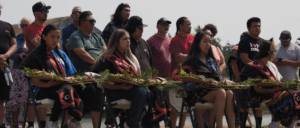
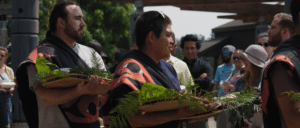
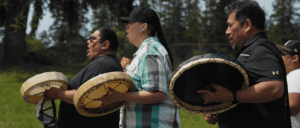
What lessons can all of us learn from the salmon?
Salmon are a resilient species. Their natural instinct is to come back home. They’ll go out in the ocean thousands of miles out, and they have an instinct to come back home to the specific place that they were hatched. Everybody should be that way, you know? Looking out for home, looking out for each other, and always looking towards the future. I think salmon are a great example of that.
Whether they want to be or not, salmon are very selfless. The killer whales depend on salmon. We as humans, we as Swinomish people, depend on salmon to sustain who we are. They feed so many other species in the ecosystem.
They’re just an amazing form of life. We greatly appreciate them and what they provide here at Swinomish.
How would you define heritage?
Where I come from, where my family comes from, the cultural learnings, and the teachings that have been passed down from generation to generation to generation. That’s heritage to me.
The Maritime Washington National Heritage Area is vast and diverse. Is there a common trait that you think might be shared by the people and entities within it?
Oh, absolutely. It’s up to us to help protect our coastlines and our waterways and the resources that are available—the natural resources that are available on those beaches and in the waters. It is absolutely up to all of us to help advocate and protect these things that really sustain life here in Washington.
It doesn’t matter if you’re a Tribal member in one of the neighboring Tribes or if you’re a Township or in a specific county. We should all be working together to advocate for the natural resources and our ways of life here in Washington state. We absolutely share that.
If you liked this interview, check out our other “This Is Maritime Washington” videos.
To learn more about the Swinomish Indian Tribal Comunity, please visit their website where you can find information about the Swinomish People and fisheries news.


